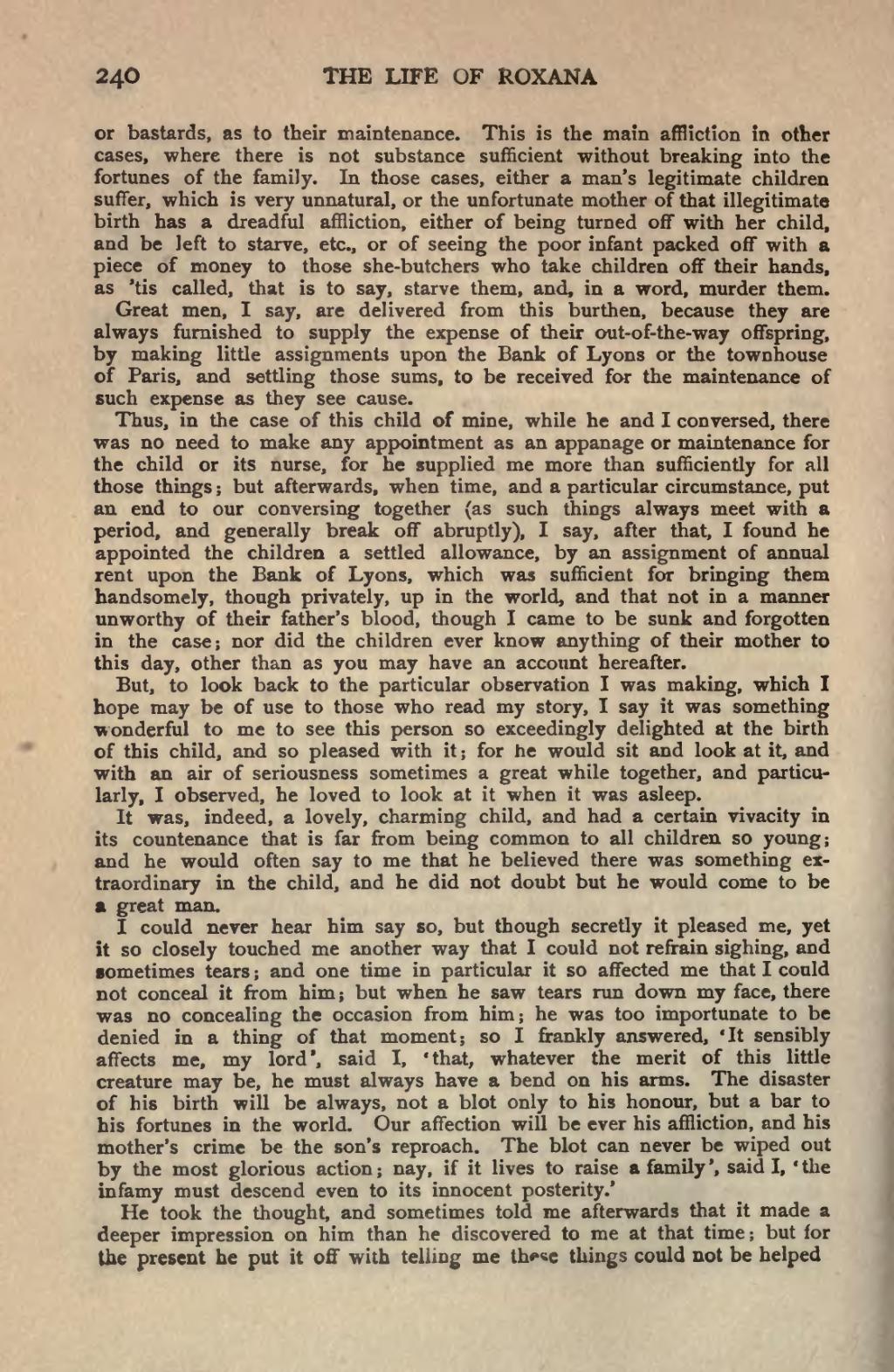or bastards, as to their maintenance. This is the main affliction in other cases, where there is not substance sufficient without breaking into the fortunes of the family. In those cases, either a man's legitimate children suffer, which is very unnatural, or the unfortunate mother of that illegitimate birth has a dreadful affliction, either of being turned off with her child, and be left to starve, etc., or of seeing the poor infant packed off with a piece of money to those she-butchers who take children off their hands, as 'tis called, that is to say, starve them, and, in a word, murder them.
Great men, I say, are delivered from this burthen, because they are always furnished to supply the expense of their out-of-the-way offspring, by making little assignments upon the Bank of Lyons or the townhouse of Paris, and settling those sums, to be received for the maintenance of such expense as they see cause.
Thus, in the case of this child of mine, while he and I conversed, there was no need to make any appointment as an appanage or maintenance for the child or its nurse, for he supplied me more than sufficiently for all those things; but afterwards, when time, and a particular circumstance, put an end to our conversing together (as such things always meet with a period, and generally break off abruptly), I say, after that, I found he appointed the children a settled allowance, by an assignment of annual rent upon the Bank of Lyons, which was sufficient for bringing them handsomely, though privately, up in the world, and that not in a manner unworthy of their father's blood, though I came to be sunk and forgotten in the case; nor did the children ever know anything of their mother to this day, other than as you may have an account hereafter.
But, to look back to the particular observation I was making, which I hope may be of use to those who read my story, I say it was something wonderful to me to see this person so exceedingly delighted at the birth of this child, and so pleased with it; for he would sit and look at it, and with an air of seriousness sometimes a great while together, and particularly, I observed, he loved to look at it when it was asleep.
It was, indeed, a lovely, charming child, and had a certain vivacity in its countenance that is far from being common to all children so young; and he would often say to me that he believed there was something extraordinary in the child, and he did not doubt but he would come to be a great man.
I could never hear him say so, but though secretly it pleased me, yet it so closely touched me another way that I could not refrain sighing, and sometimes tears; and one time in particular it so affected me that I could not conceal it from him; but when he saw tears run down my face, there was no concealing the occasion from him; he was too importunate to be denied in a thing of that moment; so I frankly answered, 'It sensibly affects me, my lord', said I, 'that, whatever the merit of this little creature may be, he must always have a bend on his arms. The disaster of his birth will be always, not a blot only to his honour, but a bar to his fortunes in the world. Our affection will be ever his affliction, and his mother's crime be the son's reproach. The blot can never be wiped out by the most glorious action; nay, if it lives to raise a family', said I, 'the infamy must descend even to its innocent posterity.'
He took the thought, and sometimes told me afterwards that it made a deeper impression on him than he discovered to me at that time; but for the present he put it off with telling me these things could not be helped
